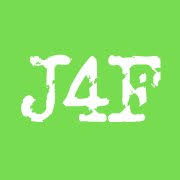Spatial configuration of deforestation in agricultural frontier: A case study in region of São Félix do Xingu - Pará
DOI:
https://doi.org/10.47946/rnera.v0i22.2073Keywords:
deforestation, geotecnology, spatial configuration, monitoring, frontier.Abstract
In the agricultural frontier of the Brazilian Amazon, the absence of territorial ownership hinders sustainable natural resources. Using field data from different institutions on the agricultural frontier of São Félix do Xingu in Pará state, this study aimed to automate through geotechnology, identification and monitoring of the dynamics of deforestation in the region, where the technical, informational and operating data are scarce, making it difficult to conduct research and development policies. The results showed that the understanding of the spatial configuration related groups of actors with different socioeconomic levels contributes to a better design of public policies that, when directed to the behavior of each category, contribute significantly to deforestation containment actions and plans for sustainable development in agricultural frontier regions.Downloads
Downloads
Published
How to Cite
Issue
Section
License
Os artigos publicados na Revista NERA devem seguir, obrigatoriamente, as diretrizes sobre ética e integridade na prática científica do Conselho Nacional de Desenvolvimento Científico e Tecnológico (CNPQ), disponíveis em seu sitio na internet (http://memoria.cnpq.br/normas/lei_po_085_11.htm). Em caso de infração às referidas diretrizes por qualquer texto publicado, o artigo será formalmente retirado de publicação, conforme a prática da comunidade científica internacional. A submissão de qualquer texto à Revista NERA implica na aceitação plena deste procedimento. As ideias e conceitos emitidos nos artigos são de inteira responsabilidade dos autores. Reforçamos que após a publicação do artigo o mesmo não será despublicado caso haja solicitação por parte dos(as) autores(as).
Lembramos que todos os manuscritos submetidos à Revista NERA são vereficados no software de similaridade "iThenticate". Os manuscritos com plágio verificado são automaticamente negados e os(as) autores(as) comunicados.
A licença utilizada pela Revista NERA é Creative Commons - Atribuição 4.0 Internacional (CCBY 4.0).
A política de arquivamento é a Licença LOCKSS.


















